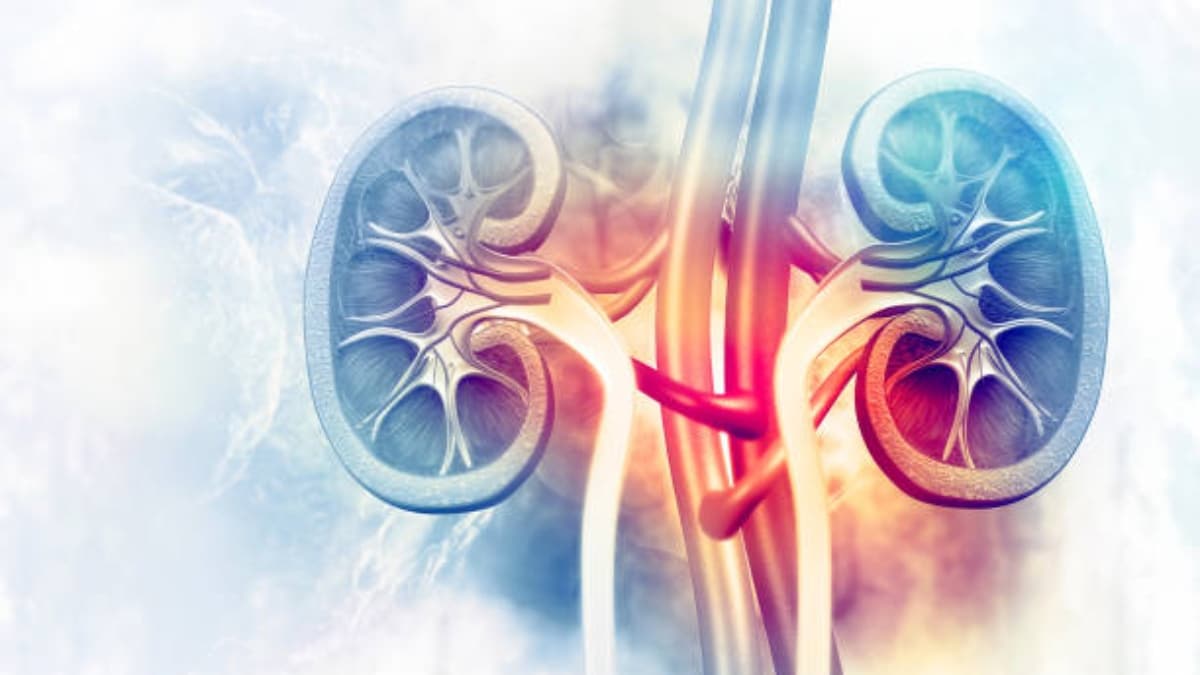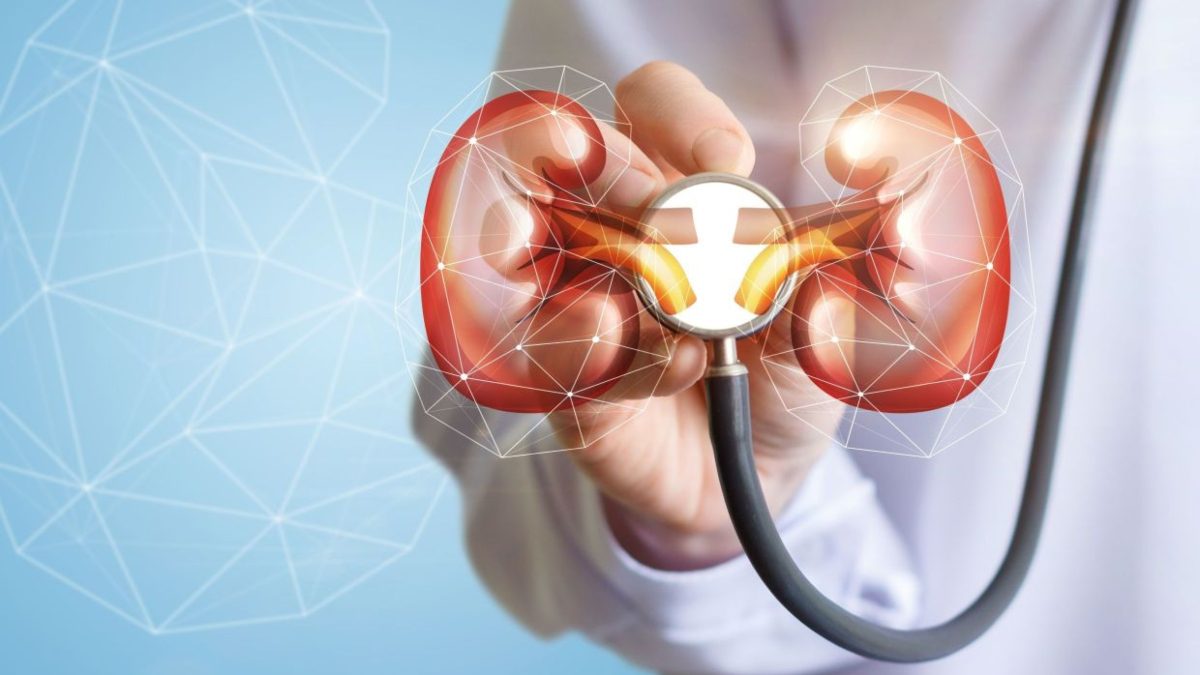Kidney Failure
Kidneys are reddish-brown bean-shaped organs located on either side of the spine, below the ribs, and behind the belly. They are vital organs that filter the blood and remove toxins from the body. These toxins then move to the bladder, which goes out of the body through urination. Kidneys are also responsible for regulating the blood pressure, balancing the electrolyte level in the body, and stimulating red blood cell production.
What is Kidney Failure?
When the kidney function drops below 15 percent of the standard rate, kidney failure occurs. This means that kidney failure occurs when the kidneys lose their ability to filter waste from the blood. Kidney failure is the last stage of chronic kidney failure. It is also known as an end-stage renal disease (ESRD).
What are the causes that contribute to kidney failure?
In many cases, kidney failure results from other health problems that give rise to permanent damage to the kidneys over a long period. However, various other factors also interfere with kidney health and functioning, like- toxic exposure to different pollutants in the environment or certain kinds of medication that has a side effect, kidney trauma, dehydration, chronic diseases, and acute diseases.
The primary causes that contribute to kidney failure include:
Loss of blood flow to the kidneys
Kidney failure occurs from a sudden loss of blood flow. The conditions that cause the loss of blood flow to the kidneys are:
- Heart disease
- Dehydration
- A heart attack
- An allergic reaction
- Severe burn
- A severe infection like sepsis
- Liver failure
- Anti-inflammatory medications
- High blood pressure
Problems with urine elimination
When the body fails to eliminate urine, the toxins move back to the kidneys. Several reasons are responsible for urine elimination problems, such as:
- Some cancers block the passage, such as prostate cancer, colon, cervical, and bladder cancer.
- An enlarged prostate
- Kidney stones
- Damages of the nerves that control the bladder
- Blood clotting within the urinary tract
Other causes
Other causes may lead to kidney failure, such as
- An infection
- Drugs and alcohol
- Blood clotting in and around the kidneys
- Antibiotics
- Unchecked and uncontrolled diabetes
- Certain dyes used in imaging tests
- Overload of toxins from heavy metals
- Chemotherapy drugs
- Autoimmune diseases
- Vasculitis- an inflammation of blood vessels
- Scleroderma- an autoimmune condition that vastly affects the skin
- Glomerulonephritis- an inflammation of the small blood vessels in the kidneys
- The hemolytic uremic syndrome is the breakdown of red blood cells in the body leading to bacterial infection, especially in the intestines.
- Thrombotic thrombocytopenic purpura is a disorder that causes blood clotting in the small vessels can also lead to kidney failure.
- Cancer of the plasma cells known as multiple myeloma occurs in the bone marrow can sometimes contribute to kidney failure.
What are the different types of kidney failure?
Five kidney failure stages fall under two main groups- Acute Kidney Failure and Chronic kidney failure. They are
- Acute pre-renal kidney failure: Acute pre-renal kidney failure occurs when the kidneys’ blood flow is insufficient. The kidneys fail to filter toxins when there is less blood flow.
- Acute intrinsic kidney failure: Direct trauma to the kidneys, such as an accident or physical impact, can cause acute intrinsic kidney failure. Toxin overload in the body and ischemia can also cause acute intrinsic kidney failure. Ischemia means the lack of oxygen to the kidneys, caused by several things like obstruction of the renal blood vessel, severe bleeding, and glomerulonephritis.
- Chronic pre-renal kidney failure: Chronic pre-renal kidney failure is a severe case that occurs when the blood flow to the kidney is limited for a long time, resulting in the shrinkage of the kidney’s size its ability to function correctly.
- Chronic intrinsic kidney failure: When the intrinsic kidney stretches over a long period, it leads to chronic intrinsic kidney failure. It results from direct trauma to the kidneys like lack of oxygen or severe bleeding.
- Chronic post-renal kidney failure: A long term blockage of the urinary tract that prevents urination leads to chronic post-renal kidney failure. This eventually leads to kidney damage.
What are the symptoms of kidney failure?
A person with kidney failure may or may not have a few of the symptoms listed below:
- Confusion
- Pain or pressure in the chest
- Reduced amount of urine
- Shortness of breath
- Swelling of legs, ankles, and feet
- Coma
- Seizures
- Persistent nausea
- The early signs of kidney failure include:
- Shortness of breath
- Fluid retention leading to swelling of limbs
- A decrease in urine output

Diagnosis for kidney failure
There are several tests conducted by doctors or professionals to diagnose kidney failure
- Urinalysis: This is the collection of the urine sample by the doctor to check for abnormal protein or sugar spills that spills into the urine. There can also be a urinary sediment examination to measure the number of red blood cells and white blood cells, high levels of bacteria, and a high number of tube sharped particles known as cellular casts.
- Urine volume: Urine volume or output measurement is one of the simplest tests that help in kidney failure diagnosis.
- Imaging: Imaging involves tests like MRIs, ultrasound, CT scans that provide images of kidneys on the screen to tract urinary malfunction. It helps the doctors to look for abnormalities and blockages in the kidneys.
- Blood sampling: It is one of the most common procedures used in kidney diagnosis. The doctor tests blood samples to measure filtered substances like blood urea nitrogen (BUN) and creatinine (Cr). A rapid rise in these indicates acute kidney failure.
- Tissue sampling: The tissues are sampled to examine abnormal deposits, scarring, and infectious organisms present in the kidneys. The doctor performs a kidney biopsy to collect the tissue sample.
What are the different stages of kidney failure?
There are five kidney failure stages- from mild (stage 1) to complete kidney failure, I.e., stage 5.
Stage 1: Stage 1 of kidney failure is very mild. The patient usually experiences no symptoms or visible complications, although some damage is present. It is possible to repress and slow the progression at this stage if a healthy lifestyle is maintained. This will include regular exercises, eating a balanced diet, stopping tobacco and alcohol consumption, and maintaining a healthy weight. A person with diabetes needs to manage their blood sugar level.
Stage 2: This is a mild stage but detects issues like protein in the urine or physical damage to the kidneys.
Maintaining a healthy lifestyle will help at this stage. However, there are other risk factors at this stage, such as heart disease, blood disorders, and inflammation.
Stage 3: The kidney disease at this stage is considered moderate, and the kidney function severely hampers. Stage 3 of kidney disease has two stages- stage 3A and stage 3B. The differences between the two are determined by a blood test that measures the waste in the body. The symptoms of kidney disease become more visible at this stage, such as swelling of hands and feet, changes to urination, back pain.
Stage 4: This stage of kidney failure ranges from moderate to severe. It’s not a complete kidney failure, but the kidneys stop functioning properly. At this stage, the symptoms lead to further complications such as high blood pressure, bone marrow diseases, and anemia.
Stage 5: This is the final stage where there is complete kidney failure or nearly so. At this stage, regular dialysis is mandatory.
Treatments for kidney failure
There are many treatments available for kidney failure. The type of treatments required depends on the reason for kidney failure
- Dialysis: Dialysis is a process through which the blood is filtered and purified with a machine. The machine performs the functions of the kidneys. The patients are given low potassium and low salt diet along with regular dialysis. Dialysis extends the lifespan of the patient, but it cannot cure kidney failure.
- Kidney transplant: Another treatment available for kidney failure is a kidney transplant. In this process, a healthy transplanted kidney is transplanted that can work as a healthy kidney. However, it’s a case based on chance and probability of finding a donor kidney compatible with the patient’s body.
Prevention for kidney failure
There are specific steps that can help in reducing the risk of kidney failure. They are:
- Maintaining a healthy lifestyle includes eating a proper diet, healthy weight management, regular exercises, curbing alcohol, tobacco, etc.
- Following the doctor’s advice.
- Taking the prescribed medicines as advised by the doctor.
- Treating the common cause of kidney failures such as diabetes and high blood sugar.
- Becoming aware of the signs and symptoms of kidney failure.
Kidneys are an essential part of the human body. They filter out the impurities from the body to ensure a healthy and proper lifestyle. It is crucial to take care of the kidneys and engage in a proper diet and routine to have a healthy kidney.
















